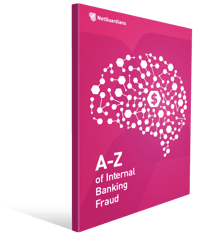Banks are increasingly turning to specialist FinTechs to deal with fraud for three solid reasons: they understand the problems better than generic it companies, they fix problems faster - in a fraction of the time - than their larger competitors, and they are better at keeping on top of emerging banking fraud scams, writes Dr Mine Fornerod.
When a person is ill, they see a doctor – who gives them a prescription to take to a chemist. The chemist provides the medicine and the patient (usually) gets better.
The doctor and chemist do not spend years investigating each patient’s problem, developing the right drug, testing it and finally administering it. Instead, they draw on the work already done by drug companies, as well as their own specialist knowledge, to quickly identify the problem and provide the right remedy.
So when the health of financial institutions is under threat from a very specific quarter – fraud – they would consult a specialist, wouldn’t they?
Banks already know that Big Data and analytics are useful in the fight against fraud. Analytics helps banks build more accurate user profiles, monitor activity and detect suspicious behavior.
More importantly, the right anti-fraud system can save banks millions. According to Gartner’s Use Big Data Analytics to Solve Fraud and Security Problems, the return on investment “is proven to be very high in certain well-defined use cases, such as account takeover or credit card bust-out schemes… or as high or higher than $10 saved or recouped for every dollar spent”.
But the US consultancy warns: “To achieve these gains, projects must be properly scoped in terms of data and processes needed to support them.”
A generic analytics and data-capture firm will need time to build up the right anti-fraud solutions for banks. They might have created fantastic customer-analytics engines for precision marketing and understanding customer sentiment. They might even have created a fraud solution for a chain of bookshops. But the chances are they do not know about fraud in finance, and as Gartner rightly points out, to succeed they will need to identify and scope out every aspect of the problem.
FinTech fraud solutions providers are different. They don’t need to reinvent the wheel for every new client. They have done the research and developed the appropriate products – and they keep on top of new fraud scams.
As a result, banks are seeking out FinTech specialists in greater numbers. A recent Finextra survey found that 81% of banking executives see working with FinTech partners as the best path to digital transformation. 87% of banks that have partnered with FinTech companies have been able to cut costs, according to a Business Insider report. In addition, 54% of partnerships increased revenue.
At NetGuardians, we are FinTech specialists fighting fraud for the financial sector. So when a bank comes to us, we don’t use up valuable resources – theirs and ours – in trying to understand their pain. We know straight away what they are feeling and exactly what to do to make it better. This means that our customers get the results they are looking for faster.
Our clients have found that we are three times faster than generic providers in achieving full working implementation. A major bank in Switzerland launched a project in January 2019 and the solution was live in April the same year. This is less than 4 months project from Kick-Off to Go-Live. A bank in Kenya also benefitted from our fast-track 4 month implementation project, and in the first month of operation they used NetGuardians to prevent a complex fraud that would have cost them over $500k.
We are also neater, more efficient and more effective because as a specialist anti-fraud FinTech we have developed a toolbox from which client solutions can be quickly built. We have a library of plug-and-play controls, for example, that help build up 360-degree profiles of users and customers. This library is constantly updated in response to the latest activities by fraudsters.
While data capture can be one of the most difficult, complex and resource-hungry aspects of setting up data-analysis solutions, our pre-defined connectors sift and sort data to make the process simple and effective, cutting risk of failure and speeding up implementation. It also means that once installed, data capture becomes automatic, removing the need for people to map, test, run workshops and assess compatibility.
All this makes FinTech solutions smoother and easier to implement, with fewer risks than solutions from generic providers. Whereas banks might have only considered established software vendors in the past, today they have an alternative in specialist FinTechs capable of giving them the peace of mind to get on with their business.



